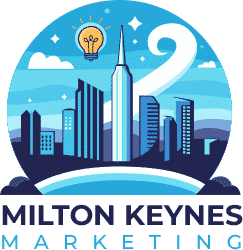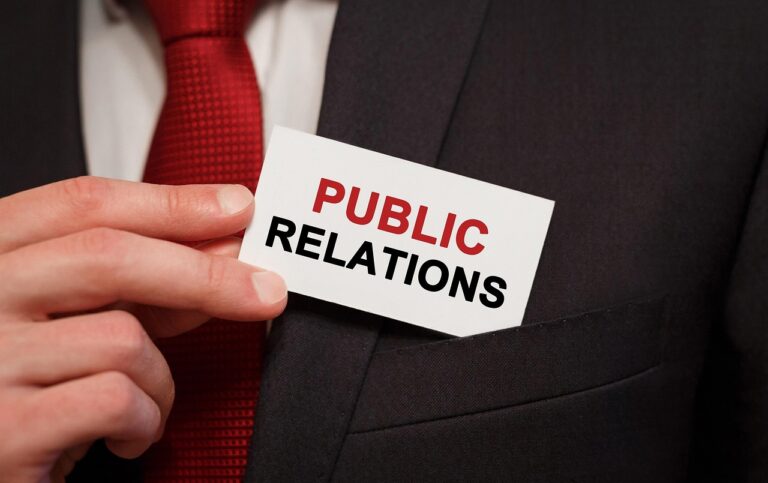Google Ads Management in Milton Keynes
Google Ads management in Milton Keynes: how an AdWords agency improves targeting, reduces wasted spend and boosts sales via data-driven strategy.
Understanding Google Ads and the Role of an AdWords Agency
1. The Basics of Google Ads
Google Ads, formerly known as AdWords, is an online advertising platform developed by Google. It enables businesses to display ads on Google’s search engine results pages and across the Google Display Network. This platform is essential for businesses wanting to gain visibility and drive traffic through paid advertising. Advertisers select keywords relevant to their offerings, and through a bidding process, ads are displayed to users searching those keywords. A well-structured Google Ads campaign targets potential customers effectively and maximizes return on investment (ROI).
2. Types of Google Ads
When considering Google Ads, it’s vital to understand the different types of campaigns available:
- Search Ads: Text-based ads displayed in Google’s search results.
- Display Ads: Visual ads appearing on websites within the Google Display Network.
- Video Ads: Ads displayed on YouTube or other streaming platforms.
- Shopping Ads: Product-based ads that appear in Google’s shopping tab or results.
- App Ads: Promoting app downloads across Google’s platforms.
Understanding these types aids in crafting effective advertising strategies aligned with business objectives.
3. The Importance of an AdWords Agency
AdWords agencies consist of teams of professionals skilled at managing Google Ads campaigns. Their expertise allows businesses to run highly successful ad campaigns without the steep learning curve associated with mastering the platform independently. Partnering with an AdWords agency offers several advantages:
- Expertise and Experience: Agencies often have extensive backgrounds in digital marketing and understand the nuances of Google Ads. They keep abreast of trends and Google updates, ensuring campaigns are optimized for current best practices.
- Time-Saving: Managing Google Ads can be time-consuming. Agencies handle day-to-day operations, freeing up business owners to focus on core activities.
- Cost Effectiveness: An experienced agency can often save businesses money by reducing wasted ad spend and increasing ROI through effective management and optimisation strategies.
- Data Analysis and Reporting: Agencies utilize advanced analytics tools to measure campaigns’ effectiveness, allowing for data-driven decisions for continual improvement.
4. Choosing the Right AdWords Agency
Selecting an AdWords agency involves more than just looking at price. Here are several factors to consider:
- Proven Track Record: Look for agencies with a history of successful campaigns, evidenced through case studies and client testimonials.
- Transparency: The agency should be clear about their processes, including how they handle budgets, strategies for keyword targeting, and methods for measuring success.
- Certification and Expertise: Google Partners are accredited agencies that must meet specific criteria, showcasing their expertise in Google Ads management.
- Customized Solutions: Instead of a one-size-fits-all approach, a good agency should provide tailored strategies that meet specific business needs.
- Communication Skills: An agency must be communicative, providing regular updates and being responsive to queries to ensure both parties are aligned throughout the campaign.
5. Critical Services Offered by AdWords Agencies
AdWords agencies provide a variety of services aimed at optimizing Google Ads campaigns:
- Keyword Research and Selection: Identifying the right keywords is crucial for campaign success. Agencies utilize various tools and methodologies to find high-volume, low-competition keywords relevant to your business.
- Ad Copywriting: Crafting compelling ad copy that captures user attention is essential. Experienced copywriters within agencies focus on clear messaging and strong calls to action to encourage clicks.
- Landing Page Optimization: Ad effectiveness is not solely determined by ad visibility but also by the landing pages users are directed to. Agencies assess landing page performance to ensure optimal user experience and conversion rates.
- Bid Management: Managing bids effectively ensures that ad positions remain competitive without overspending. These agencies employ automated tools and manual adjustments based on performance metrics.
- A/B Testing: Running experiments on various ad variations helps determine the most effective strategies. Agencies constantly test different headlines, descriptions, and calls to action to refine campaigns continually.
6. Performance Metrics to Monitor
Monitoring the right performance metrics is critical to understanding campaign success. Key performance indicators (KPIs) include:
- Click-through Rate (CTR): Measures how often users click on the ad after seeing it. A higher CTR indicates effective ad copy and targeting.
- Conversion Rate: Represents the percentage of users who take a desired action after clicking the ad. This is a critical metric for measuring ROI.
- Cost per Click (CPC): The average amount paid for each click on the ad. Agencies strive to minimize CPC while maximizing CTR and conversion rates.
- Quality Score: Google’s rating of the quality and relevance of ads. Higher quality scores lead to lower costs and better ad positions.
- Return on Ad Spend (ROAS): This metric helps understand the revenue generated for every dollar spent on advertising, crucial for evaluating overall campaign effectiveness.
7. The Evolving Landscape of Google Ads
The digital marketing environment is continuously changing, and Google Ads is no exception. Keeping up with evolving tools, strategies, and user behaviour shifts ensures agencies provide optimal campaign performance. Noteworthy changes include:
- AI and Machine Learning: Google’s introduction of AI-driven features aids in automating ad placement and performance optimisation, enabling agencies to use data and make real-time adjustments efficiently.
- Privacy Concerns: With increasing emphasis on privacy, agencies must adapt to changes in tracking and data collection to maintain effective targeting while adhering to compliance regulations.
- Voice Search: The rise of voice-activated searches alters user behaviour, requiring strategies adapted to conversational keyword usage.
8. Building a Lasting Relationship with an AdWords Agency
To maximize the potential of a partnership with an AdWords agency, establish a collaborative environment:
- Regular Communication: Schedule frequent meetings to discuss progress, challenges, and updates on strategies.
- Feedback Loop: Encourage open feedback on campaign performance and adjustments needed. Agencies should feel empowered to offer suggestions based on data insights.
- Shared Goals: Aligning on business goals establishes a mutual understanding and focus towards achieving targeted outcomes.
- Learning Together: Engage with the agency to understand the nuances of Google Ads, fostering an educational partnership that continues to develop both parties’ capabilities.
9. Conclusion
In the ever-changing landscape of digital marketing, utilizing the expertise of an AdWords agency can dramatically improve your advertising success. By leveraging their skill set in keyword research, ad creation, and performance analysis, businesses can attain better market positioning and higher conversion rates. The partnership evolves through consistent communication and shared objectives, resulting in a strategy that not only drives traffic but also leads to lasting customer relationships.



